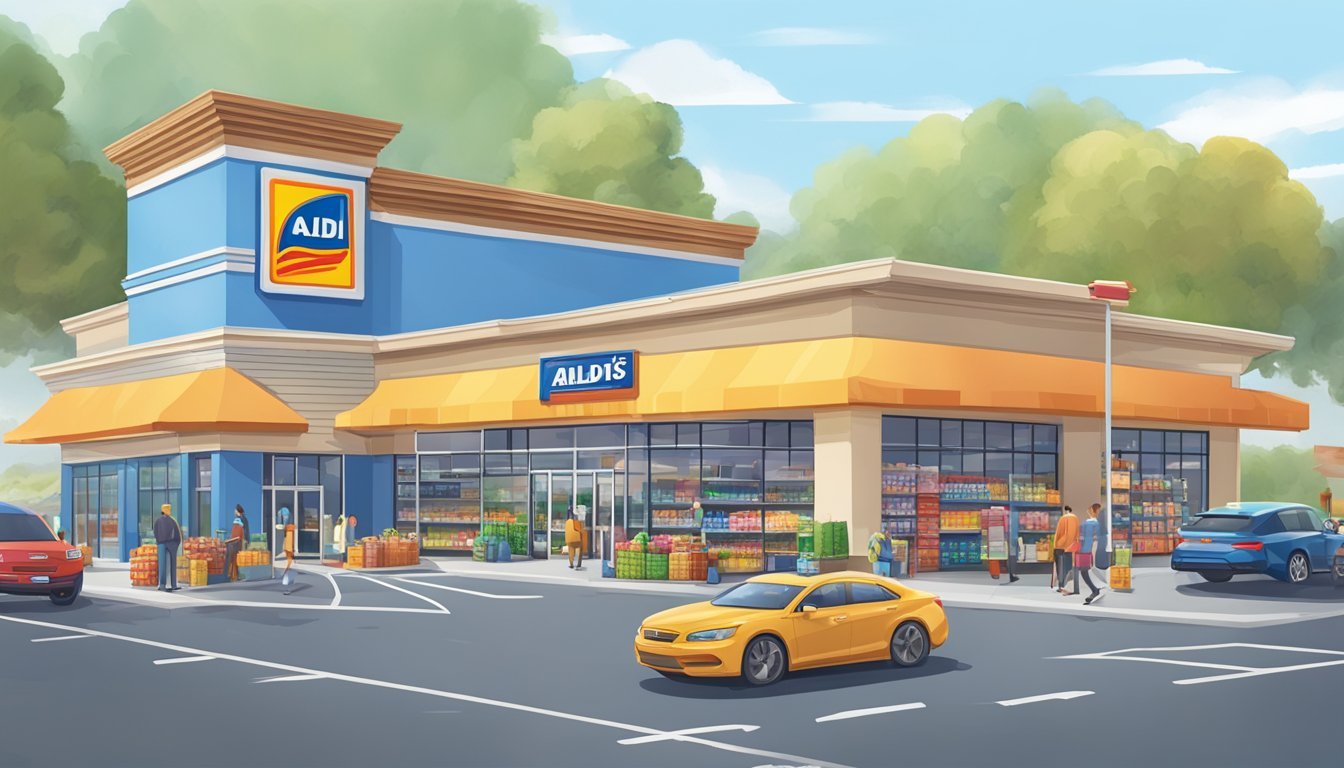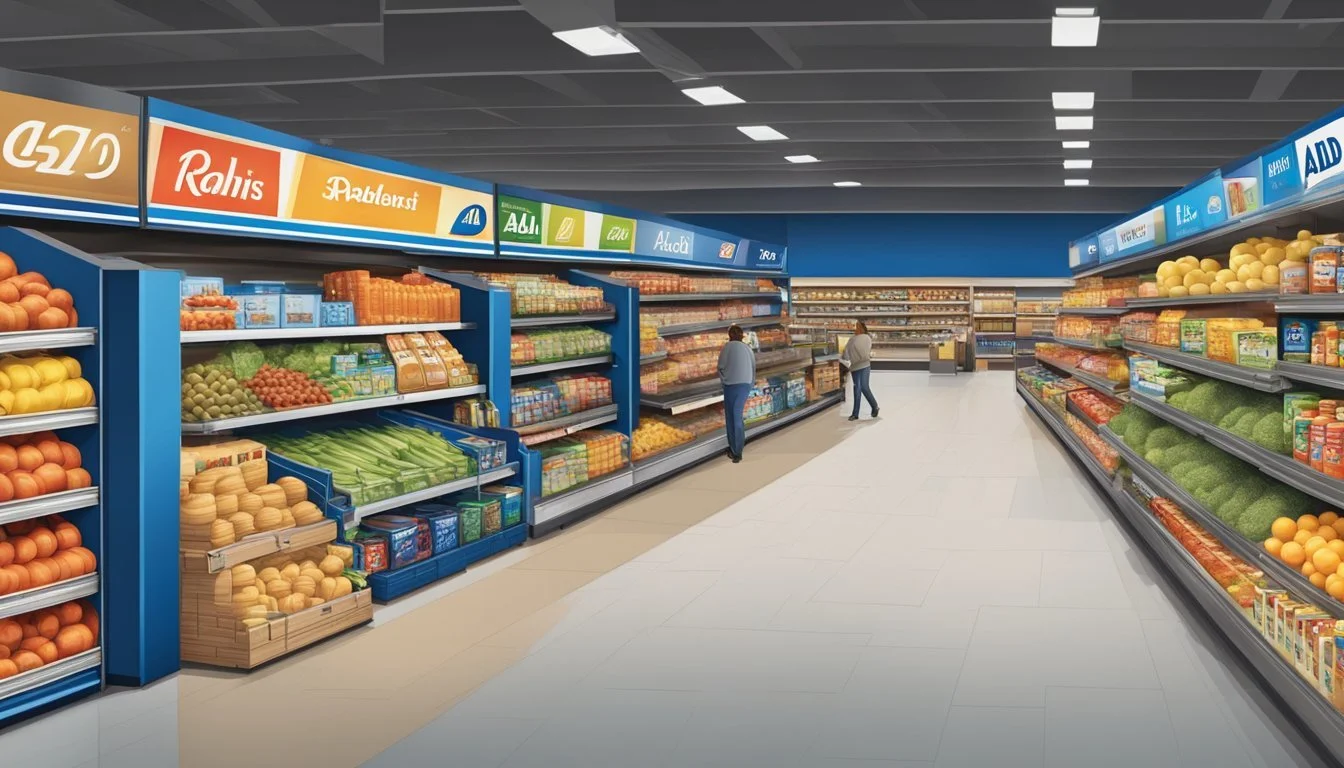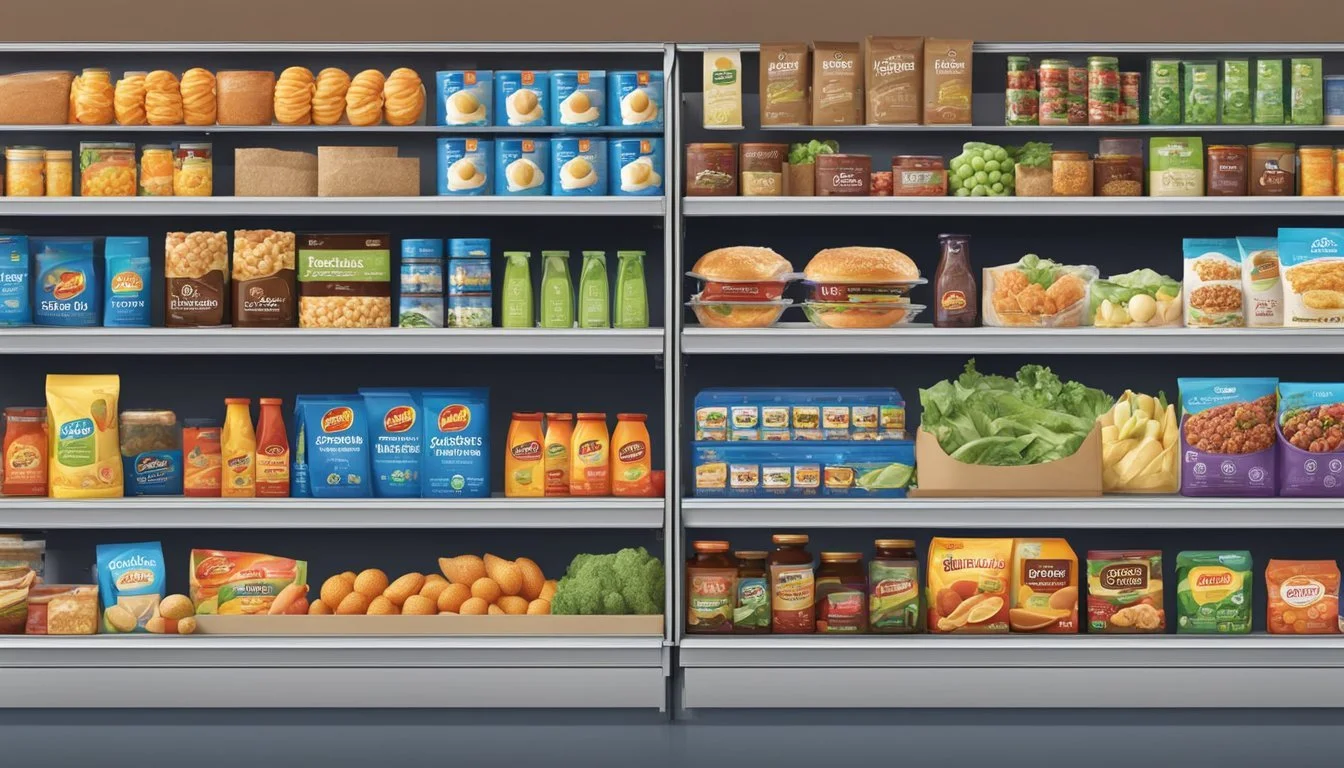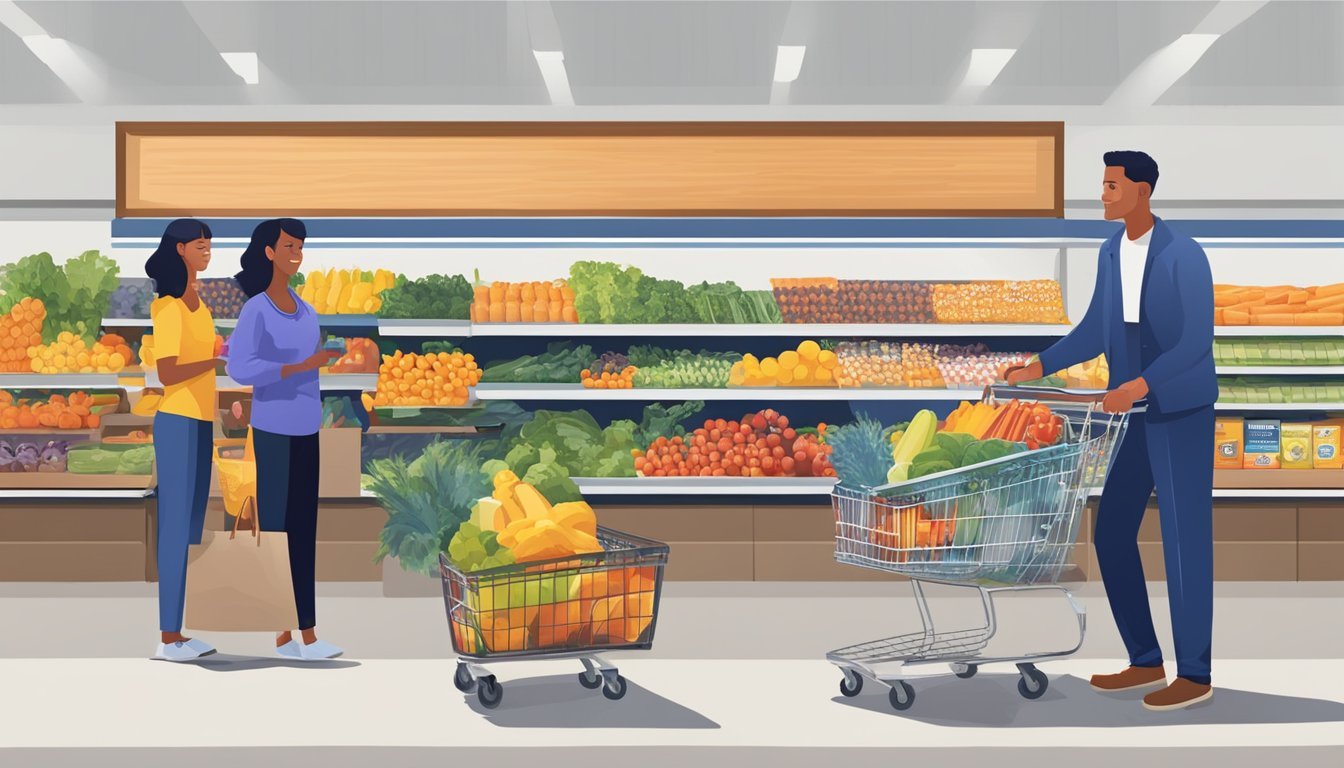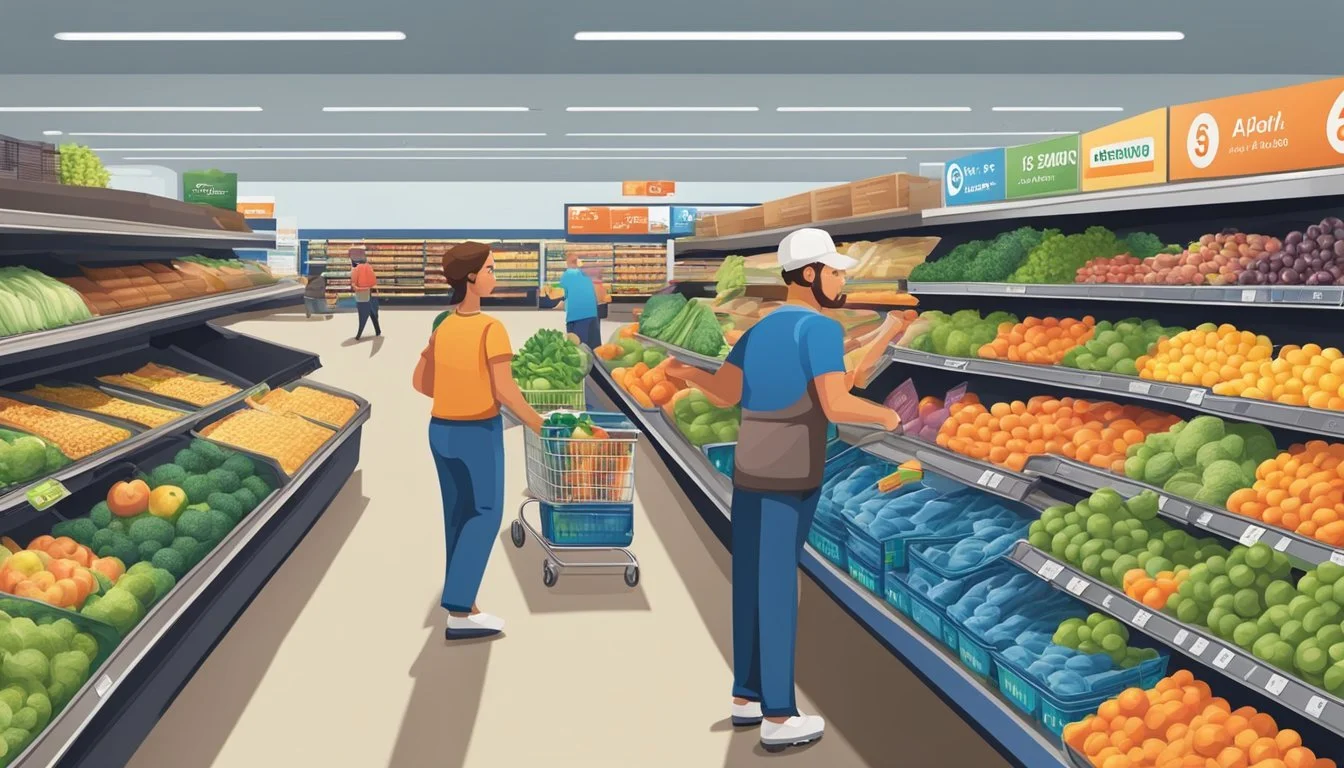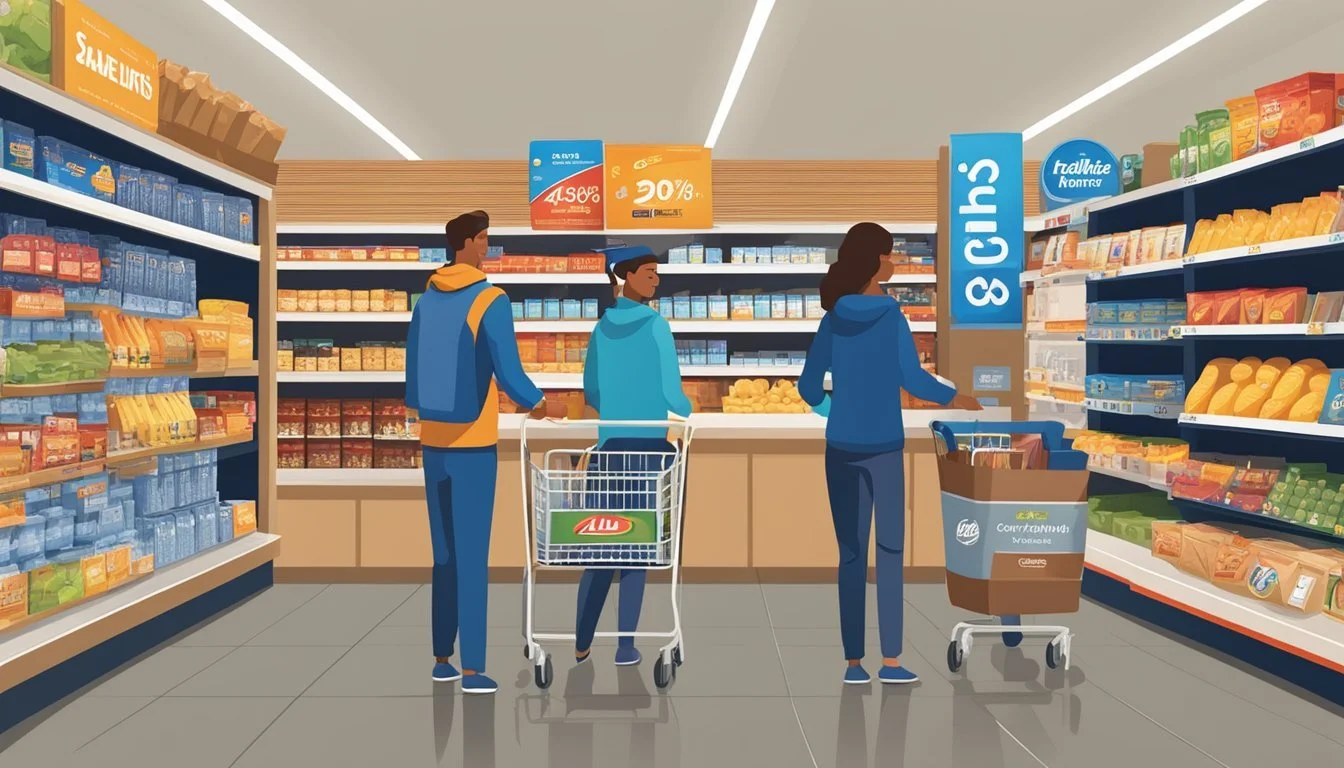Aldi vs Ralphs
Comparing Store Quality, Prices, and Selection
When it comes to grocery shopping, the choice between different stores can significantly impact both the wallet and the quality of goods that fill the pantry. Aldi, with its roots as a budget-friendly option originating from Germany, has earned a reputation for its low prices and no-frills shopping experience. It's a store built on efficiency, from its smaller store layout to the limited selection of products that prioritizes affordability and value for money.
On the other hand, Ralphs, a long-standing grocery chain under the Kroger family of companies, offers a broader range of brands, including organic and specialty items. It's recognized for providing a more traditional shopping experience with added conveniences, such as digital coupons, a mobile app for easy list-making, and weekly ads with promotional offers. While Ralphs may not always compete with Aldi on price alone, its value comes through in the variety of products and customer-centric services.
Company Profiles
In this section, the focus is on the historical narratives of Aldi and Ralphs, shedding light on the evolution of these notable supermarket chains.
History of Aldi
Aldi, short for Albrecht Discount, is a prominent discount supermarket chain that originated in Germany in the 1940s. The Albrecht brothers split the company into two divisions in 1960: Aldi Nord (North) and Aldi Süd (South). Aldi Süd is the branch that expanded internationally, entering the United States market in 1976. The brand is known for its cost-effective approach, often featuring a compact selection of private-label items and a no-frills shopping experience.
History of Ralphs
Ralphs, part of the larger Kroger family, lays claim to being one of the oldest supermarket chains in California, with roots stretching back to 1873. Founded by George Albert Ralphs, the supermarket has evolved from a small grocery store into part of Kroger, which is the United States' largest supermarket chain by revenue. Ralphs is known for providing a full-service grocery experience with multiple departments ranging from fresh produce to home goods.
Pricing and Value
When assessing Aldi and Ralphs, the focus is on how each store impacts the customer's grocery bill through their pricing strategies and value provided.
Price Comparison Analysis
Aldi is known for its low prices and has consistently been recognized for providing value to shoppers. An analysis of pricing at both Aldi and Ralphs reveals a trend where Aldi often offers the lowest prices for similar items. This is largely due to Aldi's business model that features smaller stores and a selection of primarily private label brands.
Grocery Bill: Customers generally find their grocery bill to be lower at Aldi when compared to Ralphs for equivalent items.
Price Comparison: Shoppers typically notice significant savings on pantry staples, fresh produce, and dairy when choosing Aldi over Ralphs.
Discount and Coupon Strategies
Both Aldi and Ralphs have different approaches to discounts and coupons, impacting the overall value customers receive.
Aldi: Instead of traditional coupons, Aldi offers discounts through their weekly ads, special buys, and Aldi Finds sections in-store to reduce costs further.
Ralphs: Ralphs provides digital coupons and loyalty programs, which can lead to significant savings for frequent shoppers who take the time to use these offers.
Shoppers should weigh Aldi's upfront low prices against the potential savings from Ralphs' coupons and loyalty programs when determining the best value for their grocery needs.
Product Assortment
When comparing Aldi and Ralphs, the variety and branding of products offer a distinct shopping experience at each store, especially in terms of private labels versus national brands and the quality of produce and meat.
Private Labels vs National Brands
Aldi has built its reputation on a carefully selected assortment of products, which primarily consist of private labels such as Clancy's, Friendly Farms, and Simply Nature. These exclusive brands cover a range of products from snacks to dairy, often focusing on organic options. Aldi's private-label brands are known for demonstrating consistent quality and freshness at a lower cost compared to national brands.
Conversely, Ralphs provides a wider selection, including an extensive mix of both national and private-label brands. This variety gives shoppers the flexibility to choose between name-brand familiarity and store-brand value, with the latter sometimes offering comparable quality at more competitive prices.
Quality of Produce and Meat
Aldi's strategy ensures the produce and meat offered are not only affordable but also meet certain quality standards. Despite having a limited selection, Aldi frequently refreshes its stock to maintain freshness, and its organic options have been expanding. However, the array might not be as extensive when seeking unique or specialty items.
In contrast, Ralphs boasts a more extensive array of produce and meat options. This includes a variety of organic products and wider selections of both fresh and processed meat. Their larger stores and robust supply chain contribute to a broader range of choices for consumers who value diversity in their purchase options.
The stores' approaches mirror their respective retail philosophies: Aldi emphasizes limited, quality selections to keep prices low, while Ralphs targets customers looking for a more traditional supermarket experience with extensive choices.
Shopping Experience
A shopper's journey through a grocery store is greatly influenced by the store layout, cleanliness, and customer service they encounter. These factors contribute significantly to the overall satisfaction and can affect their decision to return.
Store Layout and Cleanliness
Aldi takes pride in a simple, no-frills store layout designed to help customers find what they need efficiently. They often operate smaller stores with wide aisles and clear signage, reducing the time shoppers spend in the store. Cleanliness is a hallmark of Aldi stores, with a strong emphasis on maintaining a neat and tidy shopping environment. This focus extends to Aldi's Friendly Farms product line, which is displayed in well-organized refrigerated sections that are easy to navigate.
Ralphs, on the other hand, offers a more traditional supermarket layout with a larger floor plan and a wide range of products. Their stores tend to have separate sections for organic and health foods, floral departments, and freshly prepared hot foods. Store cleanliness is seen as important at Ralphs, with clean floors and well-maintained shelves contributing to a pleasant shopping experience.
Customer Service Excellence
Aldi's staff are known for their efficiency, especially at checkouts, which can be faster than traditional supermarkets. They may offer less in the way of personal service compared to other stores, which aligns with their streamlined, cost-saving business model.
In contrast, Ralphs tends to emphasize customer service with more staff available to assist customers. Shoppers can expect friendly interactions and helpful guidance from staff members who are readily available throughout the store. Moreover, Ralphs typically offers additional services like a deli counter and in-store bakery, where customer service plays a vital role in the shopping experience.
Market Position and Competition
The market position of Aldi and Ralphs in the grocery store sector is defined by their competitive strategies and consumer loyalty. Each brand has carved out its own niche, triggering a competitive dynamic that shapes customer choices.
Comparison with Other Supermarkets
Aldi operates on a low-cost, high-efficiency model, setting it apart from traditional supermarkets such as Ralphs. In California, Aldi's entrance into the market presented a fresh challenge to established players like Ralphs. According to reports, Aldi has experienced significant sales growth, indicating a competitive market share compared to other discount grocers and supermarkets. On the broader spectrum, Walmart maintains a leading position in offering overall value for grocery items, followed by other major chains such as Kroger, Target, and Costco.
Market Share Growth:
Aldi: 10.1% in 2022, 17.1% growth rate
Lidl: 7.1% in 2022, 18.8% growth rate
Walmart: Best value for grocery items
Other Competitors: Kroger, Target, Costco
Consumer Perceptions and Reports
Surveys and consumer reports play a pivotal role in understanding the position of Aldi and Ralphs in the grocery battle. Aldi's strategy appealed to price-sensitive customers and those who prefer a simple shopping experience. Consumer Reports have highlighted that Aldi excels in value but may offer a more limited assortment compared to traditional supermarkets like Ralphs.
Consumer Preferences:
Aldi favored for price-sensitivity and simplicity
Ralphs offers diverse product ranges
While some consumers are drawn towards the low prices at Aldi, others maintain loyalty to Ralphs, which has a broader product selection and a reputation for quality. Union representation, as reported, also influences perceptions, with chains like Kroger having unionized workforce unlike Aldi or Publix. These factors collectively shape the competitive landscape across different consumer segments.
Convenience Factors
When considering the convenience of grocery shopping, factors such as store location and the efficiency of the checkout process play a significant role in a consumer's shopping experience.
Location Accessibility
Aldi stores are strategically placed to serve a wide customer base, often located in suburban shopping areas easily accessed by car or public transportation. Ralphs, primarily serving the Southern California area, has locations in both urban and suburban settings, making them accessible to a diverse group of shoppers. Both Aldi and Ralphs aim to position their stores in convenient locations to ensure a smooth shopping experience for their customers.
Check-out Efficiency
Aldi's check-out process is designed for speed with long conveyor belts and the expectation that shoppers bag their own purchases, often resulting in faster check-out times. Ralphs employs a traditional check-out approach, with options for both self-service and cashier-assisted lanes. Both stores have invested in technology to streamline purchases, though Aldi tends to prioritize efficiency and speed in their model.
Sustainability Practices
In comparing Aldi and Ralphs, it is essential to assess their sustainability practices. Both chains have taken measures to address environmental concerns, but they manifest differently in their organic food offerings and local sourcing initiatives.
Organic Food Offerings
Aldi has made significant strides in sustainability by incorporating a variety of organic products into its inventory. The stores offer a specific line called "SimplyNature," which includes numerous organic options. Aldi's commitment is reflected in its ranking by Brightly, an online sustainability platform, which positioned Aldi as the leader among seven large American grocery chains in a sustainability scorecard.
Ralphs, a subsidiary of Kroger, also places emphasis on organic products with its "Simple Truth" brand, boasting an extensive range of organic choices. Both grocery stores recognize the importance of providing consumers with sustainable, organic food options, albeit their product lines and branding strategies differ.
Local Sourcing Initiatives
Aldi supports sustainability through its business model, which emphasizes efficiency throughout its operations. The store chains source a variety of produce and other items from local suppliers whenever possible, reducing transportation emissions and supporting local farmers and economies.
Ralphs operates under the larger Kroger umbrella and has access to a network of local sourcing initiatives aimed at decreasing environmental footprints. It works alongside farmers to procure locally grown produce, bolstering community agricultural businesses and contributing to a reduced carbon output.
Both Aldi and Ralphs demonstrate a commitment to enhancing their sustainability practices through their organic offerings and local sourcing policies.
Brand Loyalty and Rewards
Brand loyalty and reward programs significantly influence shopping preferences. These programs are designed to provide shoppers with exclusivity and savings, aiming to foster a repeat customer base.
Loyalty Programs
Aldi does not currently offer a traditional loyalty program where shoppers earn points. However, they promote brand loyalty through their consistently low prices and high-quality private label products that often meet or surpass the quality of national brands. This strategy has allowed them to maintain and grow their customer base without the use of a points-based system.
In contrast, Ralphs leverages a conventional loyalty program that benefits its customers. Shoppers at Ralphs can use a membership card to accrue points with each purchase, which can be redeemed for discounts on fuel and groceries. This points system encourages repeated visits and fosters a strong sense of loyalty among its shoppers.
Exclusive Deals and Offers
Aldi is renowned for its exclusive brands that typically offer consumers a bargain compared to name-brand products. Aldi finds strength in its special buys and weekly deals that draw customers into the store for unique offerings that aren't found elsewhere.
Ralphs offers its customers variety through digital and paper coupons accessible via the Ralphs app or through other marketing channels. These deals are often exclusive to loyalty card holders, further incentivizing shoppers to return and take advantage of the bargains that are presented each week.
Aldi: No loyalty points, focus on low prices, exclusive brands.
Ralphs: Points system, digital/paper coupons, app-based deals.
Conclusion
In the comparison of Aldi and Ralphs, contrasting aspects such as price points and shopping experience have been pivotal in reaching a final judgment.
Final Verdict on the Winner
When it comes to bargain shopping, Aldi generally assumes the lead with lower prices overall. A recorded price comparison demonstrated that Aldi’s store-brand products tend to be significantly cheaper than those of Ralphs, offering consumers a more affordable option. As for the shopping experience, Ralphs offers a variety of conveniences through its app, including digital coupons and an organized grocery list function, enhancing the consumer's shopping journey.
Recommendations for Shoppers
Shoppers seeking the lowest prices and essential goods will find Aldi to be the superior choice. However, for those who prioritize a more comprehensive shopping experience with digital amenities and sales promotions, Ralphs could be more appealing. Consumers should consider their individual needs, whether it's budget constraints or the desire for a smoother shopping experience, before deciding on the grocery store that suits them best.

